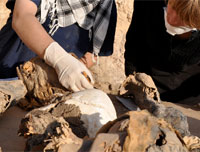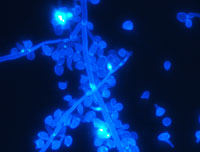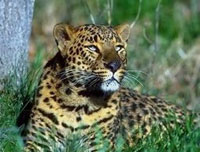Forensic Science
Is Forensic Science for me?
A degree in forensic science could lead to a career in…

...anthropology. Forensic anthropologists work on cases where they must examine the remains of a person in advanced stages of decomposition to find cause of death, evidence of the perpetrator, or simply identify the individual.

...criminalistics. Criminalists typically analyze physical evidence, such as fibers, blood spatter, and fingerprints in an effort to solve crimes. They are often involving reconstructing the series of events at a crime scene.

...toxicology. Forensic Toxicologists are involved in examining crimes involving drugs and toxic substances. This includes poisonings, drug testing of athletes, and a wide variety of other crimes involving chemical substances.

...molecular biology. DNA and other biological evidence can be an important key to solving a wide variety of crimes, including murder and assault. Molecular Biologists are often responsible for profiling DNA found at a crime scene and making a match.

...zoology. Tracking down poachers and protecting endangered species can involve many different elements of forensic science. Forensic Zoologists specialize in areas like toxicology, criminalistics, and molecular biology to solve crimes related to wildlife.

...medicine. Identifying the official cause of death in an individual is the role of a Medical Examiner, who is a trained physician. But there are many opportunities to work in other areas of medicine, including epidemiology: the study of health conditions and disease in specific populations of people.
This program is offered at the following CUNY Community Colleges:
- Borough of Manhattan Community College
- Bronx Community College
- Hostos Community College
- Kingsborough Community College
- Queensborough Community College
What do all these careers have in common?
The law and a foundation in natural science.
What sets forensic scientists apart from other natural scientists is that their work relates directly to the legal system. Forensic scientists are scientists first, but they must have a working knowledge of the law so that they can make sure their findings will hold up in court.
The careers listed above are only a sample of what you can pursue with a degree in forensic science. Since a bachelor’s degree in this area involves heavy training in core disciplines like chemistry and biology, graduates are prepared to follow careers that range from working in crime labs, to medical fields, and even environmental sciences.